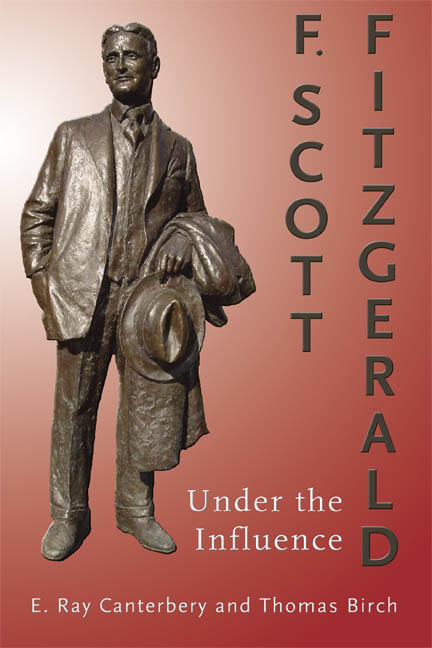F. Scott Fitzgerald: Amazon Kindle Edition
F. Scott Fitzgerald was an artist of extraordinary literary talent who tried to synthesize the ideas and events around him and give them personal expression. And, he was more than that. He and Zelda were personal participants who defined and helped to shape much of what is American. Their lives and American life are so intertwined that they seem impervious to an unwinding. They defined the Jazz Age through self-advertisements; then, Scott gave the epoch its name. Americans generally were obsessed with clever advertising and easy money in a booming stock market. But there is more, much more.
Fitzgerald's life and novels continue to personify the great contradictions in American culture and in American capitalism. Fitzgerald's novels—especially The Beautiful and Damned, The Great Gatsby and Tender is the Night— can tell us about our past but just as much about the present and our future. Notably, Scott had originally set Gatsby in the Gilded Age, an age of excesses similar to those of the 1920s. Today the Casino Economy—beginning in the early 1980s and becoming global—has remarkable parallels to these earlier epochs.
Then, the inevitable; the crashes came. A banking panic in 1907 ended the Gilded Age though not the gild, the Crash of 1929 ended the Jazz Age though not “all that jazz,” and the collapse of the technology-driven Nasdaq in 2001 brought an end to the most notorious players in the Casino Economy though not its legacy. Zelda, on the precipice at an earlier age than most supposed then or since, crashed shortly after the stock market. Although the public was unaware of Zelda's plunge, only the Great Depression upstaged Scott's “crack-up.” As he dispassionately acknowledged, his literary reputation had gone the way of the economy, as had his earnings from the Saturday Evening Post that sustained his little family.
Though his novels have long been on required reading lists around the world, Fitzgerald and Zelda's cultural presence ebbs and flows. There nonetheless was, of course, a “first” Fitzgerald Revival. It came during the early 1950s—being first literary, but inevitably leading to a renewal of his cultural significance. The Fitzgerald Revival now underway is, if anything, even more confounding because it follows some serious academic studies, yet derives its inert velocity from the vibrant personalities of Zelda and Scott, while its deeper significance once again is properly attributed to Scott.
“[Fitzgerald] lived rashly, susceptible to the worst influences of his time.… Yet at his best in The Great Gatsby, segments of Tender Is the Night, and the incomplete Last Tycoon, he wrote nearer to the societal heart than either of his august contemporaries [Ernest Hemingway and William Faulkner].”—E.L. Doctorow, commenting on Fitzgerald’s centenary celebration, Minnesota Public Radio
“Fitzgerald has always been seen as a social historian who chronicled the Jazz Age and alerted readers to the failure of the American Dream, but… most earlier studies have failed to appreciate Fitzgerald’s own complexity of attitude, his capacity to be fascinated with the collective adventure of Jazz Age America and at the same time highly critical of it.”].”
—Bryant Mangum, “F. Scott Fitzgerald,” Reader’s Guide to Literature in English
“There are few scholars whose work I have found more interesting, more useful, and who have more consistently elicited my respect and admiration. Canterbery is also original and not inhibited by conventional and controlling doctrine.”].”
—John Kenneth Galbraith, Harvard University
“Canterbery’s unique style of presentation and breadth of vision manages to breathe new life into the study of dead economists… A fine addition to the history of thought literature.”].”
—Michael C. Carroll, Journal of Economic Issues, in his review of Canterbery's best-selling A Brief History of Economics
Contents
Introduction
Growing Up Amidst the American Dream
Princeton + Ginevra
Socialist Capital
Zelda
The Conspicuous Consumers
The Beautiful and That Damned Thorstein Veblen
Gatsby and All That Jazz
Slipping Out of the City of Light
Hemingway, the Count of Darkness
All That Waste
Not So Tender Is the Night
Entering the City of Ashes
Scott, Zelda, and the Caesar Thing
“Old Scott” Goes West
Sheilah
Writing Screenplays for the MGM Stars
Hollywood Endings
Ever Afterward






